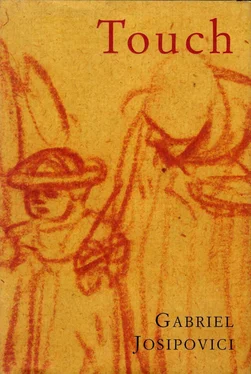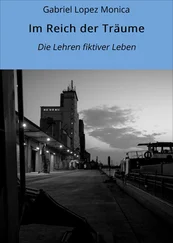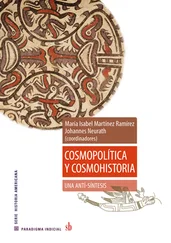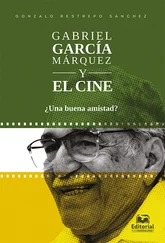Gabriel Josipovici - Touch
Здесь есть возможность читать онлайн «Gabriel Josipovici - Touch» весь текст электронной книги совершенно бесплатно (целиком полную версию без сокращений). В некоторых случаях можно слушать аудио, скачать через торрент в формате fb2 и присутствует краткое содержание. Год выпуска: 1996, ISBN: 1996, Издательство: Yale University Press, Жанр: Современная проза, на английском языке. Описание произведения, (предисловие) а так же отзывы посетителей доступны на портале библиотеки ЛибКат.
- Название:Touch
- Автор:
- Издательство:Yale University Press
- Жанр:
- Год:1996
- ISBN:0300066902
- Рейтинг книги:5 / 5. Голосов: 1
-
Избранное:Добавить в избранное
- Отзывы:
-
Ваша оценка:
- 100
- 1
- 2
- 3
- 4
- 5
Touch: краткое содержание, описание и аннотация
Предлагаем к чтению аннотацию, описание, краткое содержание или предисловие (зависит от того, что написал сам автор книги «Touch»). Если вы не нашли необходимую информацию о книге — напишите в комментариях, мы постараемся отыскать её.
Touch — читать онлайн бесплатно полную книгу (весь текст) целиком
Ниже представлен текст книги, разбитый по страницам. Система сохранения места последней прочитанной страницы, позволяет с удобством читать онлайн бесплатно книгу «Touch», без необходимости каждый раз заново искать на чём Вы остановились. Поставьте закладку, и сможете в любой момент перейти на страницу, на которой закончили чтение.
Интервал:
Закладка:
Afterwards it is several minutes before anyone knows the result. All one wants to do is breathe, calm the terrible pounding of the heart, the heaving of the chest. Then one is aware that the time-keepers and judges are in deep conversation. At least, I thought, it was close, at least I gave them a better race than the last time. With luck I may have improved my own time for the distance and one can't ask for more than that. Except that one can and does. However good the time, there is no substitute for winning.
But why should that be? Surely, one might think, swimming well, swimming to the best of one's ability, feeling the body alive, at ease with itself, is reward enough. At such times, after all, one is at the opposite pole from the prisoner in solitary confinement, from the ambiguous pleasures of addiction and perversity. At such times it seems that if the body has any destiny it is this. And yet, however much I might comfort myself by saying that I had, after all, set a personal best time, that I had simply been beaten by the better man, to have come so close and not won would have been a bitter disappointment. Of course to win when one has not swum particularly well, to win because one's opponents were themselves not on form, is not particularly satisfying either. But there is no doubt that the months of training and sacrifice only seem to pay off fully if one wins. Is it because to be beaten suggests that one is psychologically not up to the challenge, even though one may be physically well prepared? I don't know. All I know is that swimming or running faster than one has ever done before and winning is the ultimate satisfaction for any athlete. Then it becomes a pleasure to look back over the race and remember how it unfolded, how one felt at every moment, and what, in retrospect, were the turning-points. Then one recalls the bare minute it took for the race to unfold as a minute when one had somehow spoken and said all one had ever wanted to say. The pleasure that brings with it stays with one for ever, even though at the time it passes quickly and one returns to preparing for the next race.
21 Walker and World
To walk in intense heat with not a breath of air stirring requires a steeling of the will. I recall days in Egypt on which, after nine o'clock in the morning, it required real determination simply to step out of the house and into the sun. To walk in the pelting rain or a violent wind, as one so often has to do in England, though, is not much fun either. One can feel invigorated and perhaps virtuous when the walk is over, but the walk itself is something to be got through rather than enjoyed. I don't know how often I have had to walk my dogs over the downs in that sort of weather, cursing England, the dogs, and myself for ever having them. Even the dogs look miserable and there is probably only one thought in all our minds: how quickly can we get back home again?
But when, in England, the air is crisp and there is only a mild breeze blowing, when there is springy turf under foot, as there is on the South Downs and in the numerous beautiful limestone regions of the British Isles in the summer months — then one ceases after an hour or two to think about anything in particular, one becomes an embodiment of kinetic melody. Unlike swimming, where the body is fully co-ordinated only when one is moving at speed, in walking the body finds its true rhythm only when there is all the time in the world. Normally we either find ourselves lacking the energy to carry out some daily task, or having more energy than we quite know how to use. But walking for some distance on a good day in England makes all such frustrations vanish as though they had never been.
Think of what it would be like to walk if one's feet did not touch the earth, if the breeze did not touch one's face and arms. Of course nowadays we no longer have to imagine it. We can watch films of astronauts in space capsules or on the moon, or read their comments about what it feels like to move in an atmosphere devoid of gravity. It seems to be an eerie and not particularly pleasant experience.
Men, of course, have always dreamed of flight. But why should we want wings when we have feet?
The hard climbs in the Alps, three or four hundred metres, sometimes as much as a thousand, straight up and without respite, are not exactly fun. But they form part of a whole, and better than the view from the top is the feeling in one's body as one finally reaches the top and starts to walk along a ridge. It is as though, for a walk to be fully satisfactory, there have to be hard bits as well as easy bits, climbs as well as descents. Not that descents are particularly easy. I remember on my first visit to the Dolomites taking a ski-lift to the top of the highest mountain in that region and then walking back down to the hotel where we were staying. It was a nightmare. Only someone as ignorant of the mountains as I was then would ever have planned such a walk. My toes and ankles were in a terrible state by the time I got back and I didn't even have the satisfaction of achievement.
The pleasure of a walk does not lie in having mastered something or pushed oneself beyond what one thought one could do. No two walks are the same, and it is the feeling that this unique event is happening now, that I am part of it, plus the simple feeling of well-being generated by a good walk which is the important thing. Instead of feeling ‘more!’ or ‘enough!’, instead of feeling that the end is too impossibly far away or too ridiculously near, there is only the sense that, for the duration of the walk, desire and its satisfaction are one.
A few years ago in the Alps I acquired a stick. A modest piece of wood, curved at one end, with the knobs left by the removal of the twigs barely smoothed over, the whole varnished a dark brown and fitted with a metal point. I am not sure how much help it has been in the mountains, but it has become almost as indispensable to me as a dog. Now, even on the gentle South Downs, with nothing but soft chalk underfoot, I find myself missing something if, having set out, I discover that I have left my stick behind.
There is a way of deploying a stick on a walk, down, twirl, one two three four, down, twirl, one two three four, which comes as naturally as walking itself. The stick becomes an extra limb and the twirl confirms one in the act of walking, breathing the air, responding to the earth underfoot.
I have often thought, as I walked with my stick, down, twirl, one two three four, down, twirl, one two three four, of that page in Tristram Shandy , which cannot be paraphrased, only reproduced:
Whilst a man is free — cried the Corporal, giving a flourish with his stick thus –
A thousand of my father's most subtle syllogisms could not have said more for celibacy. (IX.4)
The question at issue is whether Uncle Toby's desire and need for the Widow Wadman is greater than his fear of being trapped in an unhappy marriage. Trim's answer, like Toby's whistling responses to his brother, is strictly non-verbal, but the reader has no difficulty in making sense of Tristram's ensuing comment. The twirl of Trim's stick, like the twirl in the capital letter ‘J’ of Jan van Eyck's signature in the middle of the Arnolfini double portrait, is an assertion of freedom and individuality — Trim's, Toby's, and, of course, Sterne's. For the reader has no difficulty either in grasping the message Sterne is conveying: the novelist's bondage to grammar and syntax is very similar to the bondage Toby envisages would be the result of his marriage to the Widow Wadman, and, even if, in Sterne's case, he has to submit to it most of the time, he will, like Panurge refusing the easy option of talking in French, go on asserting his essential freedom, his desire to twirl the stick of his fancy rather than conform to the conventions of novelistic narrative.
Читать дальшеИнтервал:
Закладка:
Похожие книги на «Touch»
Представляем Вашему вниманию похожие книги на «Touch» списком для выбора. Мы отобрали схожую по названию и смыслу литературу в надежде предоставить читателям больше вариантов отыскать новые, интересные, ещё непрочитанные произведения.
Обсуждение, отзывы о книге «Touch» и просто собственные мнения читателей. Оставьте ваши комментарии, напишите, что Вы думаете о произведении, его смысле или главных героях. Укажите что конкретно понравилось, а что нет, и почему Вы так считаете.












